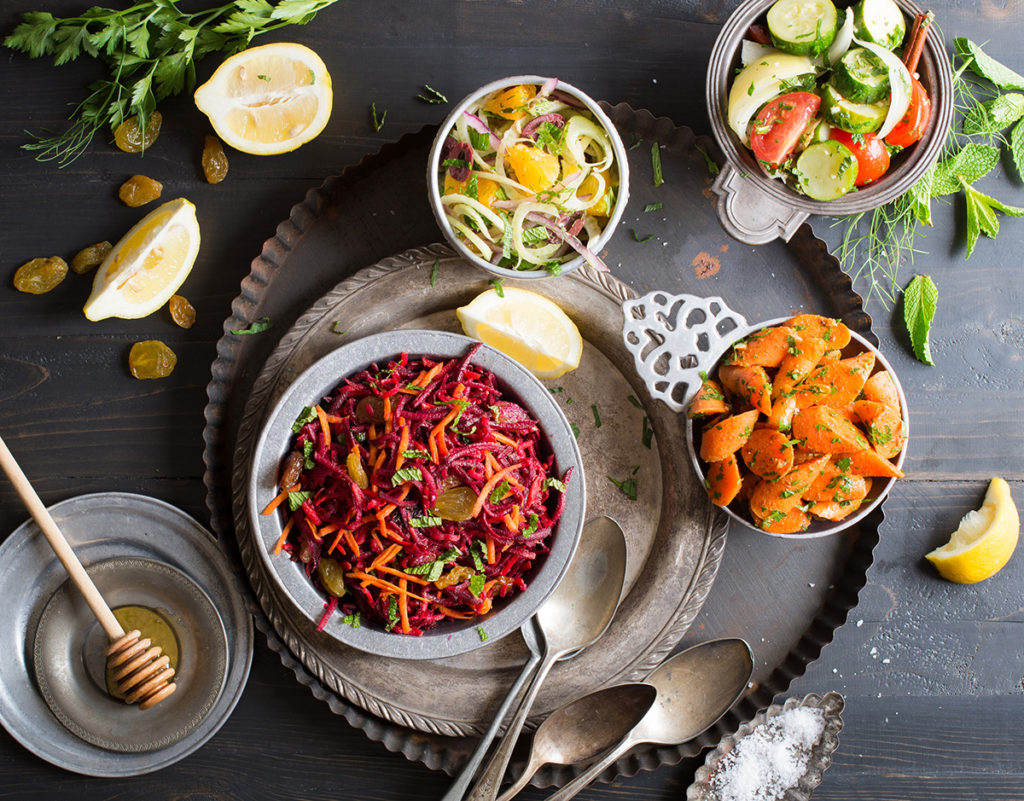
Armchair travel around the world!
Start your reading adventures with our FREE Reading Atlas.

- Around the World in 14 Books
- 7 Thrilling Book Series
- 6 Audiobooks That Are Like Theater For Your Ears



Food and drinks are some of the easiest ways — and the most fun— to vicariously experience another culture. When you add a great book to the mix, you've got the makings of a perfect evening. In Food+Fiction, we recommend a delicious read and a related recipe so you can try the taste of different destinations in your own kitchen.
This post is part of our Food+Fiction series.

Patience Portefeux is a 53-year-old woman who is just not here for any more of your nonsense. She’s had it with her translation job at the Ministry of Justice, and she’s ready to strut her way into a different life — while wearing a leopard-print hijab, thank you very much.
The Godmother is a smart, suspenseful, darkly funny crime novel set in contemporary Paris. It’s not giving anything away to say that the action kicks off when Patience, our heroine, gets more involved than she should in a wire-tap conversation she’s tasked with translating for the police.
Clever men, these drug smugglers! They move their extra-potent cannabis in the back of a vegetable truck, tucked safely amid the baskets of tomatoes, cucumbers, carrots, oranges, and dates making their way from North Africa to Paris. Who would ever suspect that lovely truckful of produce is hiding something nefarious?
When the plans for a shipment go awry, Patience reinvents herself as The Godmother. Street smart, tough, snappy, and honest in her way, she struts into what’s a man’s world and takes charge of the circumstances — with wildly entertaining results.
If you want to be a tough lady like Patience, you need to eat your veggies. And since traditional Moroccan meals almost always start with salads, we’re honoring her go-getter attitude with these vibrant recipes.
Because of France’s colonial history with Morocco (and other African and Middle Eastern countries), there’s a delicious Moroccan influence in modern French cooking. You’ll find falafel joints in almost every neighborhood and thin, spicy Mergeuz sausages have pretty much been adopted by the French. At the weekly outdoor markets, there’s a rainbow of spices and produce from across the Strait of Gibraltar.
In North Africa, salads are usually served room temperature and made with both cooked and raw vegetables for contrasts in flavor and texture. They’re seasoned with a splash of citrus for bite and aromatic spices for earthiness, then tossed with handfuls of fresh herbs. The dining table in Morocco is a lively place with family and friends passing the plates amid plenty of talk and laughter — and, in the case of this novel, perhaps planning a caper.
To encourage you to host your own feast, we’ve put together four recipes that showcase the variety of Moroccan salads: cooked, raw, spiced, and mild. We recommend you make all of them and serve them Moroccan style, arranged together on a large platter (or in individual serving bowls) alongside grilled chicken or lamb with steaming cups of mint tea. End your meal with dried dates, fresh figs, and roasted almonds.

Serves a lot.
Cook the veggies. Heat the oil in a large nonstick skillet over medium heat, 2 minutes. Add the zucchini, onions, garlic, saffron, and cinnamon stick. Cover and cook, stirring occasionally, until the zucchini and onions are just tender, about 8 minutes.
Make the salad. Remove the pan from heat. Add the tomatoes, parsley, and mint, tossing to combine. Allow the salad to cool to room temperature.
Add the dressing. When it’s cool, add lemon juice, salt, and pepper; toss, then taste and adjust seasonings. Serve at room temperature.

Prep the carrots. Wash and peel the carrots; cut on the diagonal into 1/2-inch pieces. Steam for 10-15 minutes until tender and drain.
Add the dressing. In a large bowl, mix the warm carrots with garlic, paprika, cumin, cinnamon, cayenne, lemon juice, salt, and pepper. Place in the refrigerator until the carrots are chilled.
Finish and serve. Remove from the refrigerator, drizzle with olive oil and toss to coat. Add the parsley, toss for 2 minutes, then taste and adjust seasonings. Serve cool or at room temperature.

Make the dressing. In a large mixing bowl, whisk the olive oil, lemon juice, honey, cumin, cinnamon, salt, and cayenne. Set aside.
Make the salad. Pat the shredded beets with paper towels to remove the excess beet juice, and add to the bowl, toss with dressing. Add the carrots, raisins, and mint, then toss again to combine.

Prep the oranges. Use a sharp knife to peel the oranges, removing all of the bitter white pulp and the membrane on the outside of the orange sections. With your fingers, separate the sections and cut them into 1-inch pieces — place in a large bowl.
Prep the fennel. Remove the fronds from the fennel and reserve a few for garnish. Cut the ends off the fennel bulb, and slice it very thinly, crosswise. Add the fennel, onion, olives, and mint to the oranges. Gently combine with a rubber scraper.
Make the dressing. In a small bowl, whisk together lemon juice, paprika, cayenne, coriander, garlic, salt, and pepper. Add the oil in a slow drizzle, whisking continuously. Pour the dressing over the oranges and toss gently to blend. Let the flavors meld for about an hour before serving. Taste, adjust seasonings, then top with minced fennel fronds.
It wasn’t a random decision, choosing the Fleury Quick halal fast food joint as the setting for the deal. Anything is possible in that tiny fast-food place, situated at the intersection between the main road into Paris and Rue des Peupliers, which runs past the biggest prison in Europe… I used to eat there back when I was translating Disciplinary Committee proceedings inside the prison, and I remembered well its vipers’ nest feel… — Hannelore Cayre
Working for the Ministry of Justice as a translator isn’t the job of Patience’s dreams. Her specialty is translating wire-tap recordings — most of which are conversations between drug dealers — from Arabic to French. As time passes, she’s no longer sure that her sympathies lie on the side of the police. Hours of the suspects’ conversations have humanized them in her ears — and she knows what it’s like to be in tight spots. Events of her past drive her in ways we slowly understand, and thanks to her husband’s recent demise, she’s now solely responsible for her elderly mother and her own adult daughters. All of this leads Patience to make a shocking, life-changing decision, and she becomes The Godmother. {more}
This page-turner with a dynamic (anti)heroine (192 pages) was published in September of 2019 by ECW Press. The book takes you to modern-day Paris. Melissa read The Godmother and loved it; it wouldn't be on our site if she didn't recommend it.
Bookshop.org is an online bookstore with a mission to financially support independent bookstores and give back to the book community.
Top image courtesy of Dyana Wing So/Unsplash.
Want to keep up with our book-related adventures? Sign up for our newsletter!
Can you help us? If you like this article, share it your friends!
Strong Sense of Place is a website and podcast dedicated to literary travel and books we love. Reading good books increases empathy. Empathy is good for all of us and the amazing world we inhabit.
Strong Sense of Place is a listener-supported podcast. If you like the work we do, you can help make it happen by joining our Patreon! That'll unlock bonus content for you, too — including Mel's secret book reviews and Dave's behind-the-scenes notes for the latest Two Truths and a Lie.
Join our Substack to get our FREE newsletter with podcast updates and behind-the-scenes info — and join in fun chats about books and travel with other lovely readers.

We'll share enough detail to help you decide if a book is for you, but we'll never ruin plot twists or give away the ending.
Content on this site is ©2026 by Smudge Publishing, unless otherwise noted. Peace be with you, person who reads the small type.